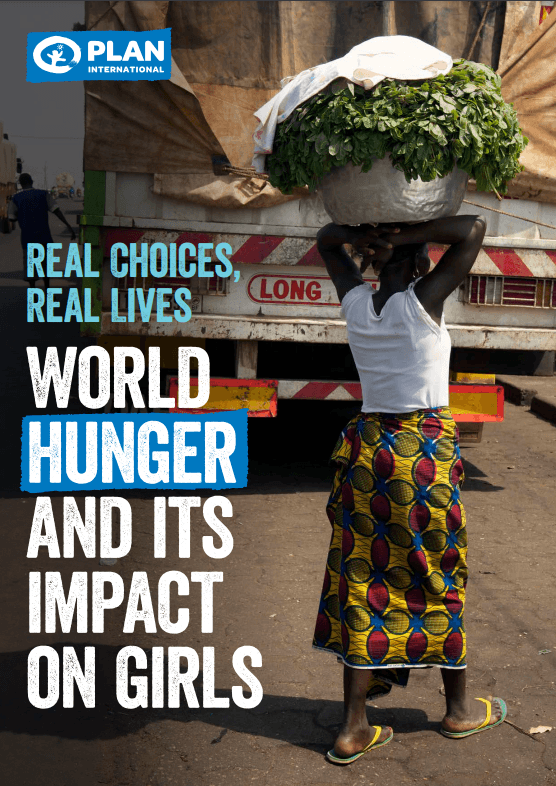World Hunger and its Impact on Girls (2022)
Real Choices Real Lives
3 August 2022The world is in the grip of an unprecedented hunger crisis putting an estimated 193 million people in urgent need of food assistance.

The effects of the climate crisis and COVID-19 are being further compounded by rising food prices, increasing the lack of access to livelihoods and poverty. The conflict in Ukraine has exacerbated this situation, in particular due to food, energy and fertiliser price increases. These impacts on world hunger are being felt across the globe and in 2022 the food security situation is deteriorating further.
Women and girls account for 70% of the world’s hungry and when food is scarce, girls are often among the worst affected, with food insecurity placing girls at risk not only of hunger, but gender-based discrimination and violence. Girls are more likely than boys to be taken out of school when families come under strain, and for those who continue to attend school, hunger can severely impact their learning.
When facing food insecurity, some caregivers resort to negative coping mechanisms in order to feed their families, and girls are at heightened risk of child, early, and forced marriage and unions. As part of its response to the global hunger crisis, Plan International is responding to the hunger crisis in 17 global hunger hotspots, providing programme responses including school feeding, cash and voucher assistance, and food distribution.
In addition, Plan International is also investigating the effect the crisis is having on girls and young women worldwide whose experiences often go unacknowledged and unaddressed.
This research brief looks to understand the effects of the crisis on the girls from the Real Choices, Real Lives study. A qualitative, longitudinal study that
has been tracking the lives of girls in nine countries in three regions for 15 years. Through annual data collection with girls and their caregivers, the study
is able to offer unique insight into the experiences of girls during childhood and adolescence in distinct contexts and the realities that shape their lives. This
research brief draws on data from two rounds of data collection that took place in 2021 and 2022 – when the girls were aged between 14 and 16 – and
explores how the global hunger crisis has impacted the Cohort girls and their families over the past two years. Data from the Cohort show that the global
food crisis reaches beyond the contexts classified as at most risk of severe food insecurity, affecting girls in countries all over the world.
Full Report
1.68 mb


